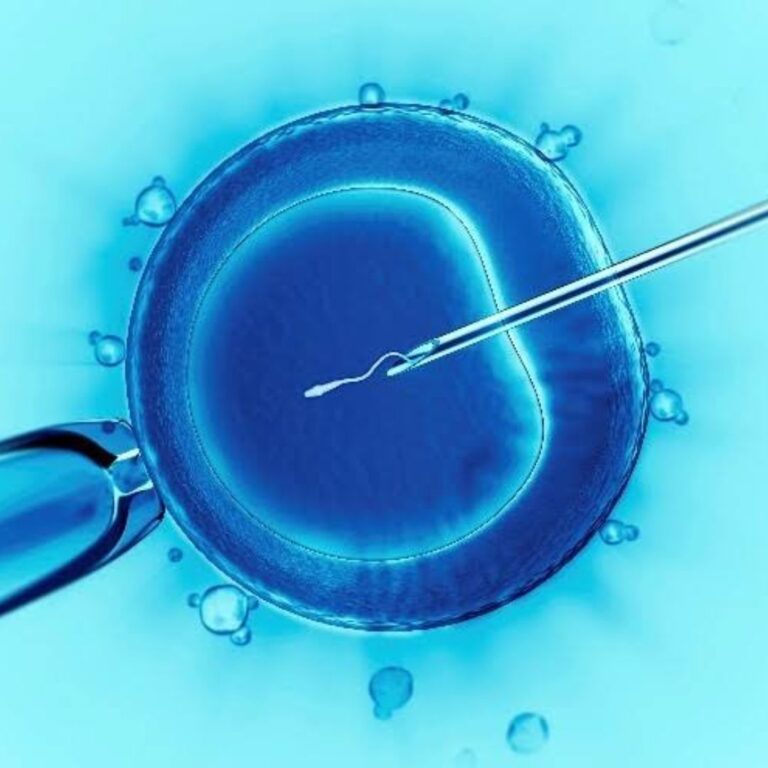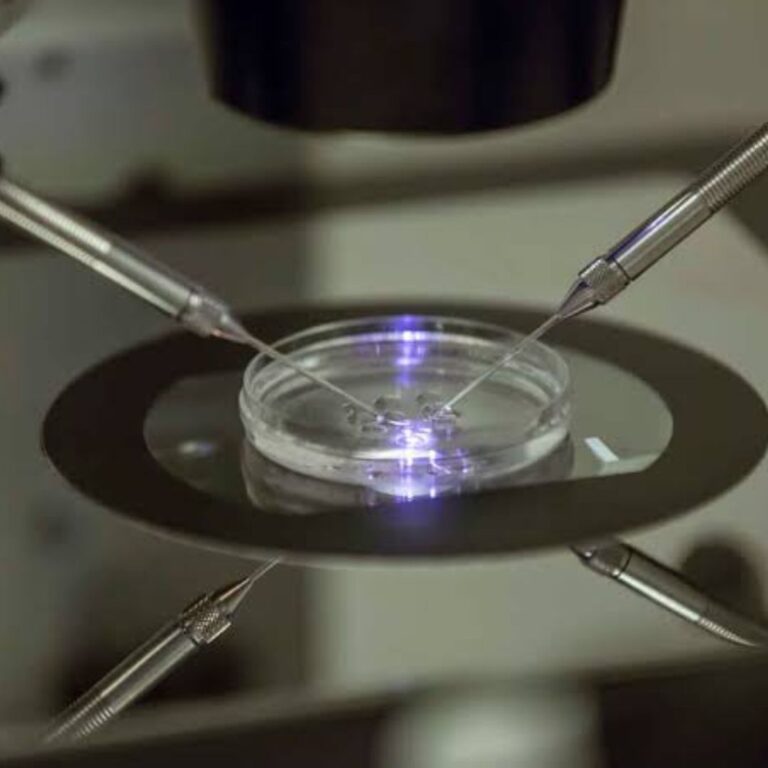
Intracytoplasmic Sperm Injection (ICSI)
Intracytoplasmic Sperm Injection (ICSI) is an advanced fertility treatment used in cases of severe male infertility or when previous attempts at conception have failed. It involves the direct injection of a single sperm into an egg to facilitate fertilization. This technique is highly effective for couples facing issues such as low sperm count, poor sperm quality, or sperm that cannot penetrate the egg on their own. ICSI significantly enhances the chances of successful fertilization and has revolutionized assisted reproduction, offering hope to couples struggling with male infertility.
ICSI or intracytoplasmic injection, revolutionized fertility treatment in the ’90s; now it is INTRACYTOPLASMIC SPERM INJECTION (ICSI) possible to achieve pregnancy with extremely low number of sperms. ICSI involves injecting a single sperm into the center of a mature egg This needs specialized equipment called a “micromanipulator,” which is attached to a high-power inverted microscope. Men with the following abnormalities in their semen are suitable for ICSI:. Extremely low numbers of active sperm. All the sperm in the sample have an abnormal shape. None of the sperm in the sample are moving


-
What is ICSI?
ICSI means intracytoplasmic sperm injection, in which a single sperm is injected into the egg under a high-power microscope. A micromanipulator is used to capture and inject a single sperm into the egg.
-
When do we do ICSI?
ICSI is done when the sperm count is very low or when the sperm motility is low. It is also done when the sperm are recovered surgically.
-
What is the difference between IVF and ICSI?
In IVF, the sperm are concentrated and mixed with the egg, they are then kept in the incubator under controlled lab conditions.
In ICSI a single sperm is injected directly into a single egg under the microscope. -
What is the success rate for IVF/ICSI procedures?
In our clinic, we define a positive outcome only if the pregnancy is seen on ultrasound. This is called a clinical pregnancy. The clinical pregnancy rate is 35% per embryo transfer.
Of all the factors affecting the success of the IVF cycle, the major factor affecting the success rate is a woman’s age. Another factor, such as
Sperm quality, Uterine factors, endometriosis, etc. can affect the outcome. -
Is the success percentage different for IVF and ICSI?
The success rate of IVF/ICSI depends on many factors, such as the quality of the sperm or ovum and other factors like the uterus. On average, the success rate for the procedure is 35%.
-
How many times can one do IVF or ICSI?
Most couples who benefit from IVF and ICSI will achieve pregnancy by the third or fourth attempt.
The decision to continue the treatment is based on the observations made during the first one or two cycles. -
How many days are required for one IVF or ICSI cycle?
It takes about a month for the preparation and processing of the IVF cycle
-
When and how can I know if I am pregnant?
After the embryos are transferred into the uterus, a blood test for estimation of the bHCG level is done after 13 days. If the test is positive for a pregnancy, the bHCG level is again estimated after 48 hours to judge the growth of the pregnancy.
A month after the embryo transfer, sonography can visualize the pregnancy as well as the baby’s heartbeats. -
Can the embryos be stored?
Fertilized embryos may be frozen and stored for future use, depending on their quality.
-
What is the chance of success using the frozen embryos?
In our center, the success of a frozen embryo transfer is 30% per attempt, which is very close to the fresh embryo transfer process.
-
What are the chances of twins or triplets after IVF/ICSI?
The chances of conceiving twins are 20% after a two-embryo or multiple-embryo transfer.
Elective, single embryo transfer will eliminate the chances of twins (except identical twins) -
What is Ovarian Hyperstimulation Syndrome (OHSS)?
OHSS is one of the few complications of IVF. In rare instances the enlarged ovaries are associated with the collection of fluid in the abdomen, this is called OHSS. IF not detected and treated effectively OHSS can be a serious condition.










